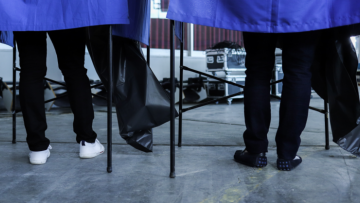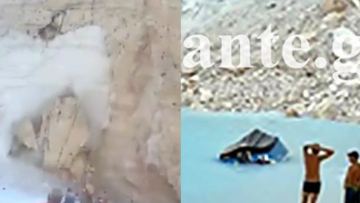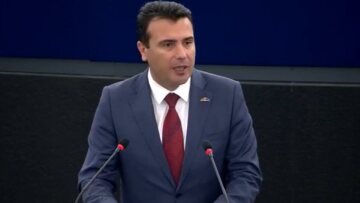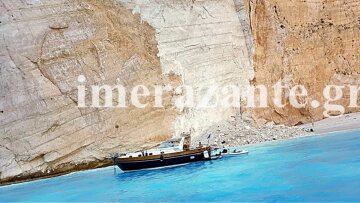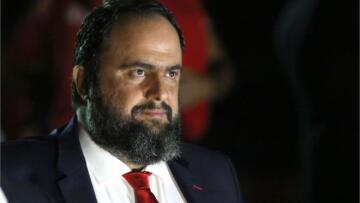
Samaras says "No" to "selective default" and private participation
Samaras says "No" to "selective default" and private participation
An attack on the government, as a response to the “selective default”, was launched by ND president Antonis Samaras in a statement made after his meeting with US Foreign Minister Hillary Clinton...
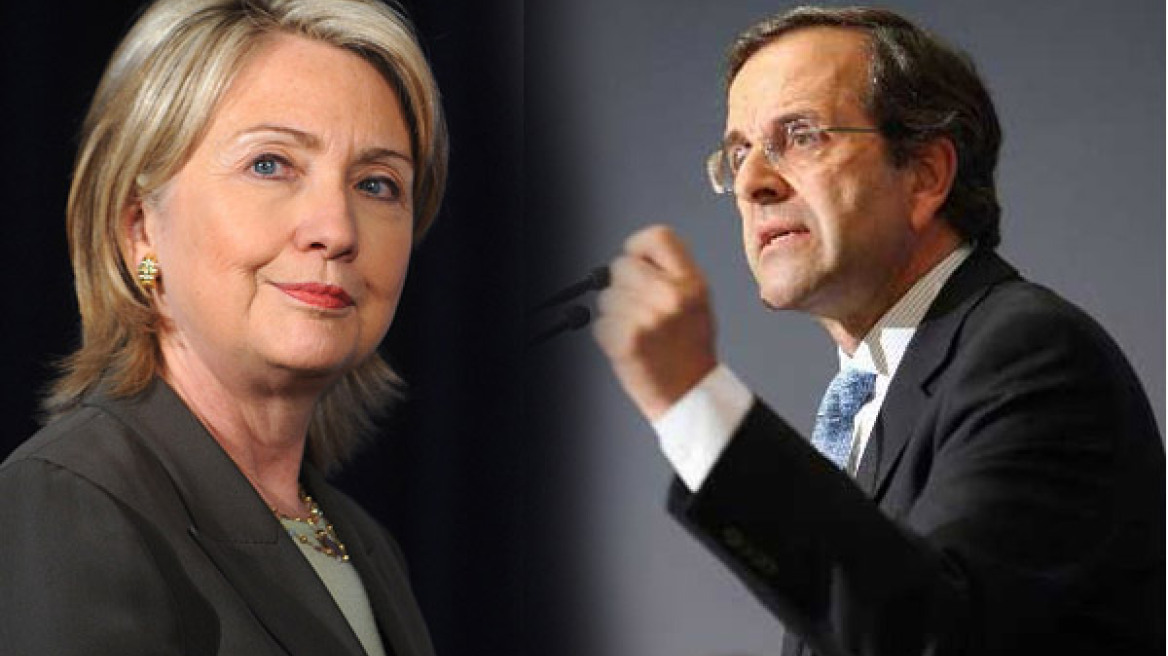
UPD:
An attack on the government, as a response to the “selective default”,
was launched by ND president Antonis Samaras in a statement made after
his meeting with US Foreign Minister Hillary Clinton, during which matters of global economic developments and the management of debt were discussed.
Mr. Samaras blamed the government for accepting the selective default which would have devastating consequences on the Greek economy, adding that the government is still refusing to negotiate, while everyone is talking about Greece.
“As I told Mrs. Hillary Clinton, the New Democracy party is not in agreement with the government about the involvement of private entities in the risk of governmental bonds”, stated Mr. Samaras, who explained: “Firstly, because this will lead to selective default, which will ultimately create a problem after the ECB’s difficulty to provide liquidity to Greek banks by pledging Greek government bonds. Secondly, the selective default will cause Greece anxiety, and thus the real economy will suffer from unforeseen reactions. Thirdly, selective default will bring about debt restructuring, which will in turn have a negative impact upon the banking system and the insurance funds.
He indicted the government’s attempt at beautifying the situation, even though selective default will worsen the recession. He supported that his positions are strengthened by the fact that the ECB head has refused selective default as an option and will not accept any bonds of a government which has defaulted, partially or completely.
He also added that there has been no selective default in the Eurozone in the past, and no one knows the repercussions that this will have. He also stated that there is no guarantee that selective default will only last for a while. Furthermore, he put forth the fact that despite the interest rate reduction last March, the economic situation still worsened.
“The improvement in credit conditions is necessary, but not under terms which will cause the country greater recession. Such an improvement may be either short-term, with the right to repurchase bonds in the secondary market, or long-term, with the issuance of a Eurobond”.
Mr. Samaras blamed the government for accepting the selective default which would have devastating consequences on the Greek economy, adding that the government is still refusing to negotiate, while everyone is talking about Greece.
“As I told Mrs. Hillary Clinton, the New Democracy party is not in agreement with the government about the involvement of private entities in the risk of governmental bonds”, stated Mr. Samaras, who explained: “Firstly, because this will lead to selective default, which will ultimately create a problem after the ECB’s difficulty to provide liquidity to Greek banks by pledging Greek government bonds. Secondly, the selective default will cause Greece anxiety, and thus the real economy will suffer from unforeseen reactions. Thirdly, selective default will bring about debt restructuring, which will in turn have a negative impact upon the banking system and the insurance funds.
He indicted the government’s attempt at beautifying the situation, even though selective default will worsen the recession. He supported that his positions are strengthened by the fact that the ECB head has refused selective default as an option and will not accept any bonds of a government which has defaulted, partially or completely.
He also added that there has been no selective default in the Eurozone in the past, and no one knows the repercussions that this will have. He also stated that there is no guarantee that selective default will only last for a while. Furthermore, he put forth the fact that despite the interest rate reduction last March, the economic situation still worsened.
“The improvement in credit conditions is necessary, but not under terms which will cause the country greater recession. Such an improvement may be either short-term, with the right to repurchase bonds in the secondary market, or long-term, with the issuance of a Eurobond”.
Mr. Samaras supported that “it is clear that the government negotiated nothing and condemned the country to the Memorandum and an unprecedented recession. Up until a few days ago, they kept telling us that bankruptcy will be avoided with the Medium-Term plan, while now they are telling us that ‘selective default’ is inevitable for the debt to become sustainable”.
He reiterated that “the government must not negotiate. We need liquidity and direct European investment in order to recover and improve loan terms without a selective default”.
Last but not least, Mr. Samaras said that as Mr. Trichet’s report stated, the solution can be provided by the member states themselves without private involvement, and now that everyone is talking about Greece’s fate, Greece itself should have a dynamic voice, with the government negotiating actively and effectively
He reiterated that “the government must not negotiate. We need liquidity and direct European investment in order to recover and improve loan terms without a selective default”.
Last but not least, Mr. Samaras said that as Mr. Trichet’s report stated, the solution can be provided by the member states themselves without private involvement, and now that everyone is talking about Greece’s fate, Greece itself should have a dynamic voice, with the government negotiating actively and effectively
UPD:
Ακολουθήστε το protothema.gr στο Google News και μάθετε πρώτοι όλες τις ειδήσεις
Δείτε όλες τις τελευταίες Ειδήσεις από την Ελλάδα και τον Κόσμο, τη στιγμή που συμβαίνουν, στο Protothema.gr
Δείτε όλες τις τελευταίες Ειδήσεις από την Ελλάδα και τον Κόσμο, τη στιγμή που συμβαίνουν, στο Protothema.gr
ΡΟΗ ΕΙΔΗΣΕΩΝ
Ειδήσεις
Δημοφιλή
Σχολιασμένα

























